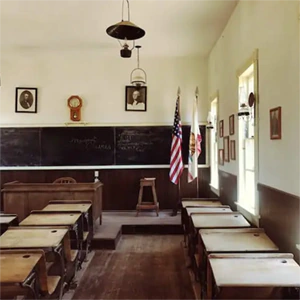Correct!
Well played, "C" is the correct answer!You are a very knowledgeable person, try the next question!

That was the correct answer, click on the button below and let's discover the next question!
NEXT
Princeton University, initially established as the College of New Jersey in 1746, emerged with the central objective of training individuals for a specific purpose within the Presbyterian Church. Its early focus on spiritual education laid the foundational cornerstone for its enduring dedication to intellectual exploration and ethical principles.
While Princeton holds a membership within the Ivy League, the terminology "Ivy League" did not come into usage until the 1930s. It is often attributed to the verdant ivy that adorned the walls of university campuses. Nevertheless, it is pertinent to recognize that the terminology did not find application as an indicator of an organized athletic conference until a subsequent timeframe.
Albert Einstein, an exceptional figure of the 20th century, fostered a deep connection with Princeton. His alignment with the Institute for Advanced Study at Princeton, commencing in 1933 and persisting until his passing in 1955, further fortified his significant prominence within the realm of academia. Einstein's presence significantly bolstered Princeton's reputation as a center of intellectual brilliance.
Situated within the precincts of Princeton's campus, the McCarter Theatre serves as both a cultural nucleus and a repository of historical significance. Inaugurated in 1930, it has played host to an array of theatrical presentations, thus enriching the vibrant artistic ambience of the university.
Nassau Hall, Princeton's oldest edifice, bears witness to a storied past. In the year 1802, a destructive fire decimated the interiors of the structure, obliterating its original features. Nevertheless, the exterior remained intact, leading to the subsequent restoration and preservation of Nassau Hall's former grandeur.
The university's Latin motto, "Dei Sub Numine Viget", translates to "Under God's Power, She Flourishes". This motto provides insight into Princeton's enduring dedication to both intellectual exploration and ethical values, underscoring the university's dual commitment.
Princeton lays claim to an episode of football history as well. In the year 1869, the university engaged in a match against Rutgers University, an event often hailed as the first instance of intercollegiate football. While this game bore little resemblance to the contemporary form of football, it marked the inception of a beloved American tradition.
Built within the university's grounds is a hidden treasure named "Lake Carnegie". Conceived as a result of the financial support provided by Andrew Carnegie in 1906, the lake was conceived to cater to the university's rowing team and continues to be utilized for activities such as rowing and leisurely pursuits.
Following Albert Einstein's demise, his brain was subjected to scientific inquiry. Dr. Thomas Stoltz Harvey, a pathologist associated with Princeton Hospital and a faculty member of the university, was among the researchers involved in this study.




